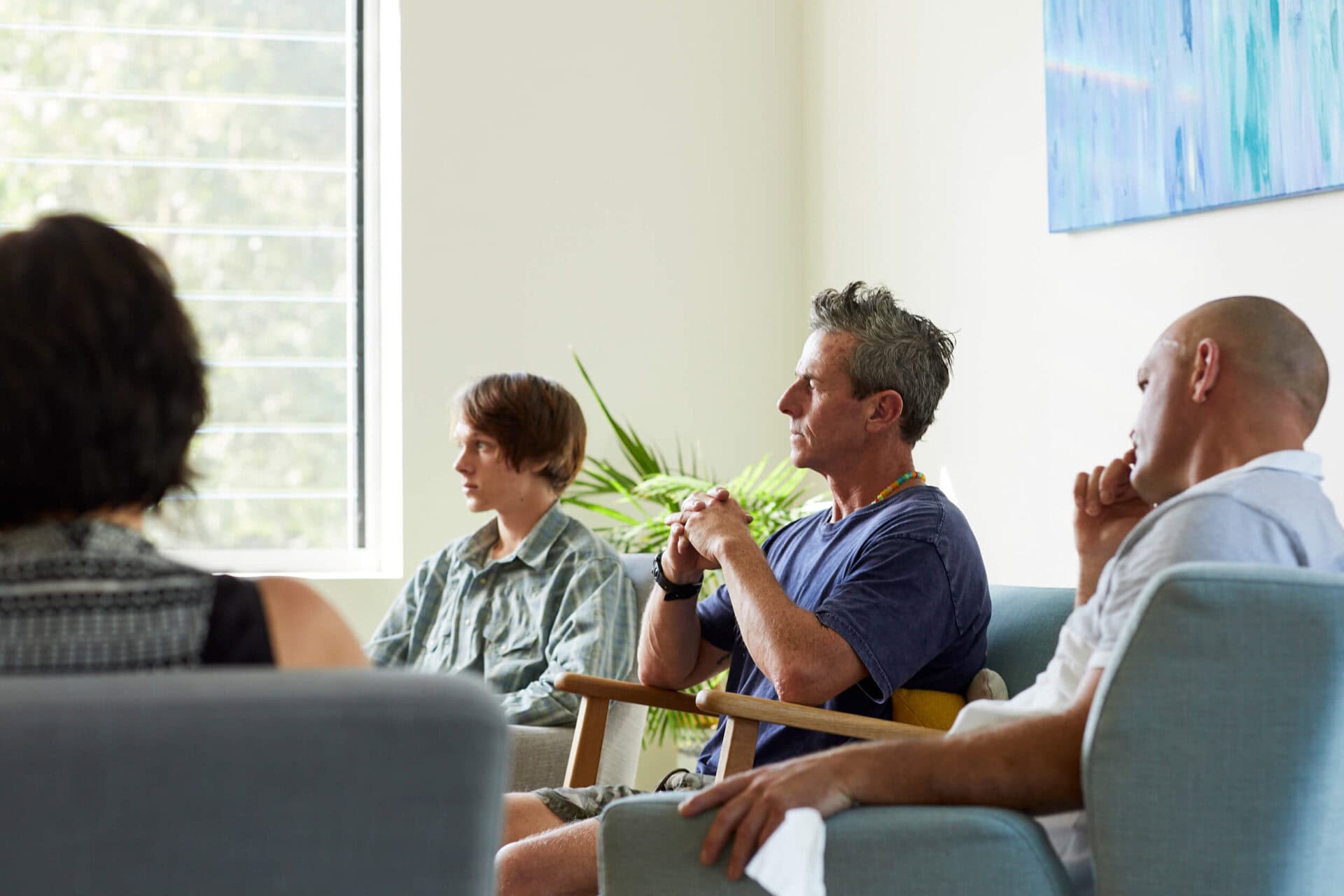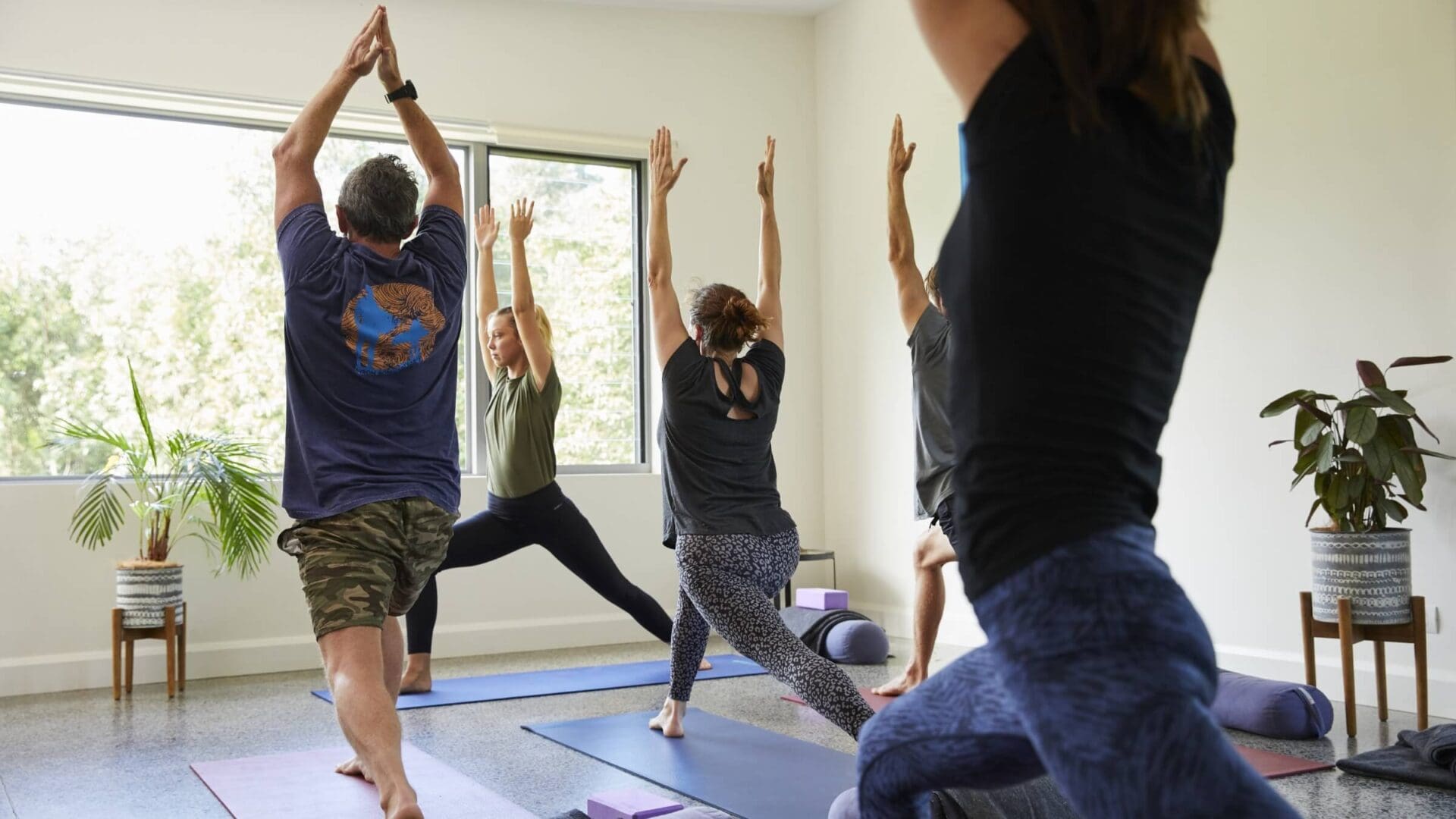Yoga is an ancient system over 5000 years old from India, which translates to mean union. This can refer to the union of body, mind and breath, or union of our individual self and our higher cosmic self. Simply put, yoga means connection, which on a deep, core level, is something we are all longing for. In yoga, the mind is often referred to as the “crazy, drunken monkey mind”.
Without taming the mind and thoughts, it can spiral out of control creating a domino affect on the body, breath, emotions, and reflexes and can result in cravings and addictions. It is for this reason that Yoga is proven to be one of the most effective treatments for trauma and associated addiction because it works holistically, strengthening and bringing into balance our whole being.

Yoga targets from all directions: the physical body, the nervous system & breath and most importantly, the mind.
Signature
Physical yoga postures (asana) are practiced to stretch and release tension, accumulated toxins and stress from the body while strengthening and bringing steadiness and balance. Breathing practices (pranayama) are done to work on the energetic or pranic level and very quickly calm the body and focus the mind. Meditation and more advanced practices bring further control and mastery of the mind helping to reduce anxiety and depression. When practiced regularly over time, yoga for depression therapy induces a profound sense of relaxation with endless restorative effects and a heightened sense of self, leading to inner peace, bliss, and eventually self-realisation.
Recognised as a powerful adjunct to recovery treatment, Byron Private’s yoga therapy sessions will introduce you to a ritual to practice through recovery and into the future. Byron Private Treatment Centre’s highly qualified and experienced yoga and meditation instructor Tabatha Smith provides clients with a safe and loving space that encourages empowerment through body and mind connection.
